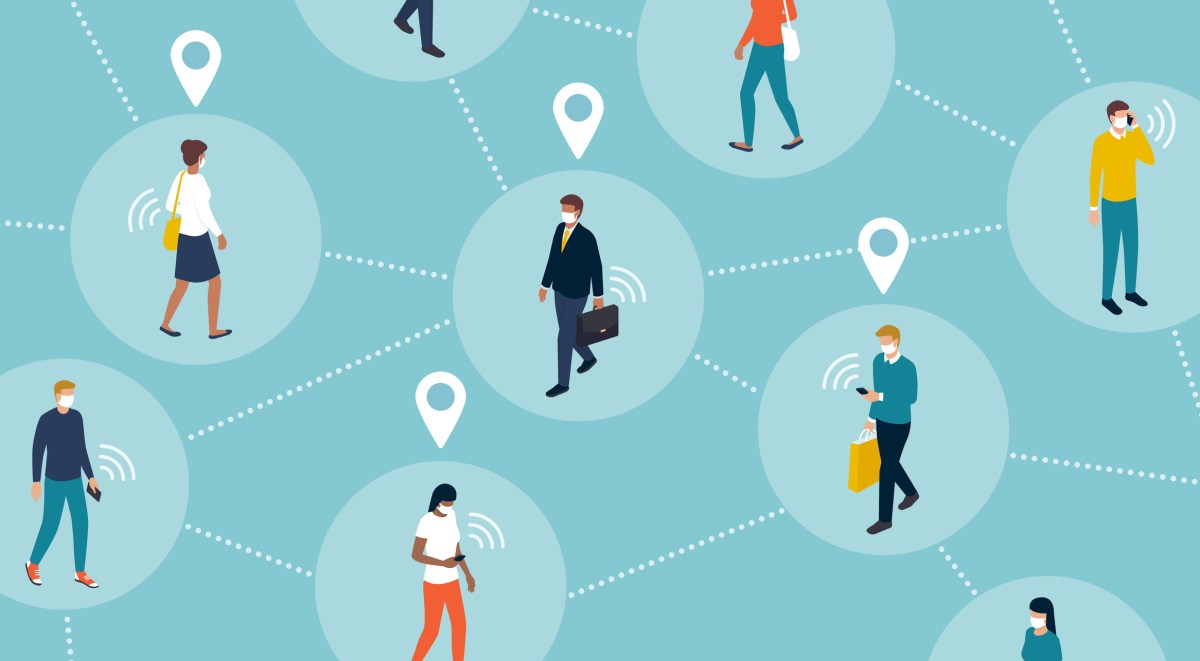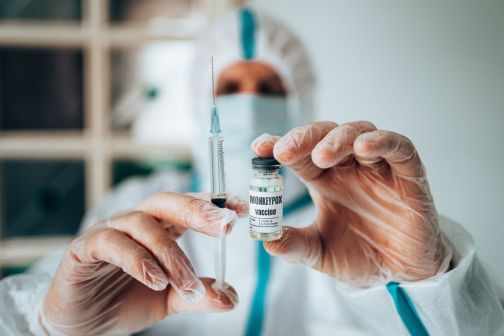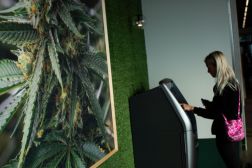Rhode Island’s contact tracing plan sparks privacy concerns

Rhode Island officials are attempting to launch a robust contact-tracing program to determine if people who have tested positive for the novel coronavirus have spread it to others. But the program, which would use data collected from the mobile phones of residents who’ve volunteered, has raised a few objections from privacy-rights advocates.
Contact tracing involves asking patients of an infectious disease to keep track of whom they’ve encountered, in hopes of containing further transmission. Currently, Rhode Island is conducting contact tracing by having members of the National Guard try to locate people with whom COVID-19 patients may have come into contact. But the process can be slow-going, especially as the number of infections keeps rising.
Under a new voluntary plan that Gov. Gina Raimondo teased last week, participants would download a mobile app, which would collect information that would be turned over to the state Department of Health if they test positive for COVID-19. On Tuesday, Raimondo told reporters in Providence that the app would survey users multiple times per day if they are experiencing any symptoms of the severe respiratory illness.
But the planned data collection prompted a rebuke from some of Rhode Island’s Republican lawmakers, who accused Raimondo, a Democrat, of violating civil liberties.
“[It] is unlawful for RIDOH and its contractors to acquire personally-identifiable cellular location data without user consent or a judicial warrant, even during this COVID-19 crisis,” the legislators wrote in a letter, the Providence Journal reported.
There have been 3,529 positive cases of COVID-19 in Rhode Island, with 87 fatalities, Raimondo said Wednesday. While the state is one of the most aggressive in testing residents for the novel coronavirus, it is still several weeks away from hitting the expected peaks of its infection and hospitalization rates, according to the University of Washington.
Phone-based surveillance has been used in the handful of countries — including South Korea, Singapore and Taiwan — that have been most successful in containing the virus’ spread. But those measures are not being so readily embraced in the United States. Raimondo said “we have to be careful to meet the needs of public health without violating civil rights.”
But public health experts agree that aggressive contact tracing will be necessary to reopen many parts of the economy that have been shuttered over the past month — a step that will likely require widespread data collection. The American Civil Liberties Union, in a report published last week, said that while contact tracing will be crucial, it could lead to abuses of individuals’ personal information.
“The potential for invasions of privacy, abuse, and stigmatization is enormous,” the ACLU said.
Not all states’ contact-tracing initiatives are relying on mobile data, though.
In Massachusetts, Gov. Charlie Baker this month announced a program that will recruit 1,000 contact tracers to connect directly with COVID-19 patients and the people they may have encountered. Massachusetts contracted with companies like Accenture and Salesforce to set up virtual support centers to house the data collected by those contact tracers, though the data itself will be owned by the Massachusetts Department of Health. Rhode Island is also working with Salesforce.






